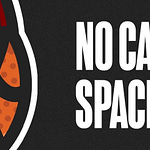For those of you that are loyal Five Out readers, you know the general format. If you’re unfamiliar, usually we’ll write about five noteworthy things that happened in women’s basketball in the last week. It’s rare that we deviate from that but here we are. Sometimes, things are just that important.*
One of the founding principles of No Cap Space is to be proactive in how we approach and discuss major news items in our world. A regular problem of ‘old guard’ WNBA media is a tendency to ask why certain things are underdiscussed instead of going out and doing the work to discuss it yourself. We grew tired of that and want to be the people banging the drum on something first, setting the agenda and not letting things get to a point where we genuinely wonder ‘wait, why *aren’t* we talking about this?’
Sometimes, the full onus is placed on new fans to go about learning the history of the league before “allowing” them to opine on what’s happening now. At NCS, we’d rather just give you the material upfront and avoid that conversation entirely. So Five Out is ISO ball for one week and one week only. But I promise, it’s important to set this narrative now because when the day comes that the Connecticut Sun leave Uncasville, it’s important that we all put the proper respect on the Mohegan Tribe’s name.
*If you do want to hear some discussion about the DiJonai Carrington trade, the weekend slate of games and other things, we took our new weekend wrap show and put it into podcast form for you above.
1. However It May End, The Mohegan Tribe Deserve Their Flowers
If you got into the WNBA in just the last year, the Connecticut Sun are probably something of an enigma. I’d imagine your perception is that they’re like the Billy Beane era Oakland Athletics or maybe worse: a cash-strapped team that sometimes punched above their weight class but never got the investment needed to succeed. I wouldn’t even blame you if you saw the Mohegan Tribe, the owners of the Sun, as appearing aloof or even unwilling to really lay down some cash needed to compete in this era of women’s basketball. You might hear the stories of practicing at a Tribal Rec Center, jettisoning nearly all of their players from a 2024 playoff team or their remote location for a franchise — Uncasville and New London, Connecticut — and come away with the idea that this is a group unfit to be a part of the new WNBA.
While you may be right that the Tribe potentially selling the team, as the Boston Globe reported this weekend, is a net positive for the league, you would be wrong to suggest that this is an ownership group that was bad for the W since its inception. In fact, the Mohegan are one of the most successful and essential stewards in the history of the WNBA. If this is truly the end for them, their tenure should be met with a standing ovation and an earnest gratitude for what they did for women’s professional basketball.
To really lay it out, let’s turn the clock back to 2002.
The WNBA was in a state of flux around this time. The NBA, who owned their sister league, sold every franchise back to their team operators. What does that mean? Well, for the first five years of the W, owners didn’t actually own their team. They merely managed it on behalf of the NBA, a strategy made to maintain stability and ensure sustained success of the league.
Once the sales of franchises to their operators was completed, some decided to jump ship. Rich DeVos, the owner of the Orlando Magic and Miracle, cashed out. With no local ownership group willing to step in, the Mohegan Tribe in Connecticut made an offer for $10 million to save the team and relocate them to Uncasville.
At a time when the Portland Fire and Miami Sol folded, the Utah Starzz moved to San Antonio and the Cleveland Rockers were on life support, the Tribe bought in. It tied the pro league to UConn, who were a national brand by that point, and allowed the state to have their first true pro sports franchise since the Hartford Whalers left in 1997 to become the Carolina Hurricanes.
They immediately hired Mike Thibault to be their head coach, traded a second round pick for UConn legend Rebecca Lobo, and held on to some of Orlando’s best talent from Katie Douglas to Taj McWilliams-Franklin and Shannon ‘Pee Wee’ Johnson. By 2004, the Sun made it to the WNBA Finals, where they fell to Seattle in a three game series. In the first six seasons in Uncasville, Connecticut never missed the playoffs, made four conference final appearances and competed for a title in back-to-back seasons.
Since their move from Orlando 22 years ago, the Sun have made the playoffs 16 times, the conference finals (or league semifinal) 11 times and the Finals four times. They’ve housed two MVP’s— Tina Charles in 2012 and Jonquel Jones in 2021 — while five different players across multiple eras have been All-WNBA mainstays.
While they never were the most lavish spenders, the Sun were consistent competitors under Tribal ownership and worked constantly to reinvent themselves to remain competitive. After making the playoffs in their inaugural season, they traded Pee Wee Johnson to the newly minted San Antonio Silver Stars for a package of picks. One was the 4th overall selection in 2004.
Connecticut picked future Hall-of-Famer Lindsay Whalen.
In 2010, the Sun flipped Whalen and the second pick of the draft to Minnesota in exchange for Renee Montgomery and the first overall pick.
They selected future MVP Tina Charles.
Front offices executives in Uncasville repeatedly found diamonds in the rough who would prove to be indispensable players to the WNBA’s history. Absent consistent lottery picks, the Sun made it a habit of finding diamonds in the rough in the draft or making deadline deals to reinvent their roster.
In 2014, Connecticut traded Tina Charles as part of a package that netted them the rights to New York’s fourth overall draft pick: a young star from Maryland named Alyssa Thomas. Two seasons later, they dealt Chelsea Gray (who the Sun picked 11th in 2014) to get the rights to future MVP Jonquel Jones. Beyond acquisitions, the Sun always seemed to be a place to return to. After the infamous Tenders N’ Bites incident in Atlanta, Courtney Williams was welcomed back to Connecticut where she was able to get her career back on the right track. After a decade away from the franchise, Tina Charles returned to Uncasville this season to help be a veteran leader for a young and rebuilding team. Morgan Tuck, the current GM of the team, was a 2016 draft selection who played with the Sun for three years. In spite of everything, from aging facilities to a less-than-ideal destination city for a pro athlete, Connecticut was always a safe haven.
Off the court, the Mohegan made WNBA history in other ways. While NBA owners hemmed and hawed about the lack of return on investment from the W, the first group to own their franchise independently of their partner league was the first to turn a profit. They did this while being the first Native American tribe to own a professional sports team. 23 years later the only other major Tribal owner in American sports is the Sycuan Band of the Kumeyaay Nation, who have a substantial stake in San Diego FC of Major League Soccer.
I highlight all of this success and information to prime you for one simple take…
It may be time for the WNBA to move on from Uncasville but how we talk about the Mohegan ownership group should be celebratory and gracious in nature.
The game may have passed The Tribe by from an investment perspective, that much is true. Last season’s drama over a shared practice facility (the Mohegan’s Community Center) set the table for a sad yet inevitable fact: the priorities in Uncasville are different than the rest of the WNBA’s.
“Ultimately, our purpose here is to always provide services to our growing membership,” Tribal Secretary Joe Soper told CTInsider in 2024. “That’s health care, that’s education needs. Everything from a summer camp program that we offer to kids or daycare assistance or utility assistance. Those type of services that we can provide for the betterment of our tribe, which is growing. We’re at 2,300 members now.”
Could they theoretically afford eight or nine figures for a beautiful state of the art WNBA facility on the banks of the Thames River or a bit south in New London where it could overlook the Long Island Sound? Sure. But does that provide a service for the Tribe and their members? Not in the slightest.
Which is why this weekend’s report that the Sun were in the process of being sold to former Boston Celtics owner Steve Pagliuca felt a long time coming. On Saturday, the Boston Globe published a story stating the his investment group would pay $325 million to purchase the team, invest $100 million to build a dedicated facility in Boston and relocate the franchise.
The WNBA, for their part, almost immediately released a statement saying the sale had not yet been approved and that relocation had not been finalized. It makes sense when you consider what the priorities of the league office are. If you’re deciding between Boston as an expansion franchise (one that a group would presumably pay an exorbitant fee for) or Boston as a relocation franchise, I know which one makes more financial sense for the W. The idea that they could not only miss out on expansion money but also get flack from the non-NBA aligned candidates (think Nashville and Austin, who have serious money and top end cap tables in their bids) about who is allowed to jump the line and who isn’t. Sources close to those bids have indicated that there is a general sentiment of feeling like NBA ownership groups are being prioritized.
While never explicitly said by the WNBA or its’ partner league, a consistent pattern and trend of ownership prioritization could eventually lead to an antitrust challenge in court if things turn acrimonious.
Thickening the plot further was reporting by Emily Adams over at the Hartford Courant, that former Milwaukee Bucks owner Marc Lasry was attempting to compete with the Pagliuca bid to buy and relocate the team to Hartford. Both bids include money for practice facilities, exceed $300 million in purchase price and are still on the table. Pagliuca released a statement on Sunday afternoon clarifying the status of the bid. Curiously, the group repeatedly referenced ‘New England’ in relation to a possible purchase and relocation of the Sun as well as listed support for the bid by Massachusetts Governor Maura Healy and Rhode Island Governor Daniel McKee.
The Globe stated in their reporting that a 2027 move would potentially include playing early season games in Providence to avoid any conflict with Bruins or Celtics playoff games at TD Garden.
However it ends and wherever they go, this Monday column is about properly setting the agenda and record straight about the Mohegan Tribe and their stewardship in the WNBA. During a time when few were willing to invest in women’s basketball, they did. When NBA owners were fine treating their partner franchises like second class crap for most of the 2000’s, the Mohegan made it a priority to compete.
As longtime women’s basketball writer Maggie Hendricks said on Bluesky, “…Them selling now when they saw they couldn’t make the investments necessary to keep up is still good stewardship.”
With so much growth coming to women’s basketball, the arms race is fully on. If the Tribe isn’t able to finance it in a way others are, then cashing out on a wise investment is the right thing to do for everyone involved. In many ways, they helped save and stabilize women’s professional basketball in the United States. That is worthy of remembrance.
To the non-longtime WNBA fan, here’s a potentially helpful analogy to understand Connecticut’s place in our ecosystem…
The Sun are our Buffalo Bills.
They may not have titles, they may not be in a ‘sexy’ city, they may not be a player’s first choice of location and might not ever punch in the weight class of the biggest spenders in their leagues. But over the course of their history they’ve done more with less, powered by a diehard group of fans that have been with them from the jump. It’s their thing, we just may never understand. And that’s okay.
Connecticut is, in a lot of ways, one of the beating hearts of the sport. Whether the next step of the Sun’s evolution is staying in-state, moving to Boston or somewhere else entirely, we’ll always have fond memories of a team that was always willing to try. The Mohegan Tribe may not have ever won the big one but they weren’t failures by any means and deserved to be remembered as something more than the group that split a WNBA playoff practice with a child’s birthday party. They were one of the few that bought in early, stayed the course, invested when needed and set their players up for success.
By any metric, it’s a tenure that is worthy of celebration.













